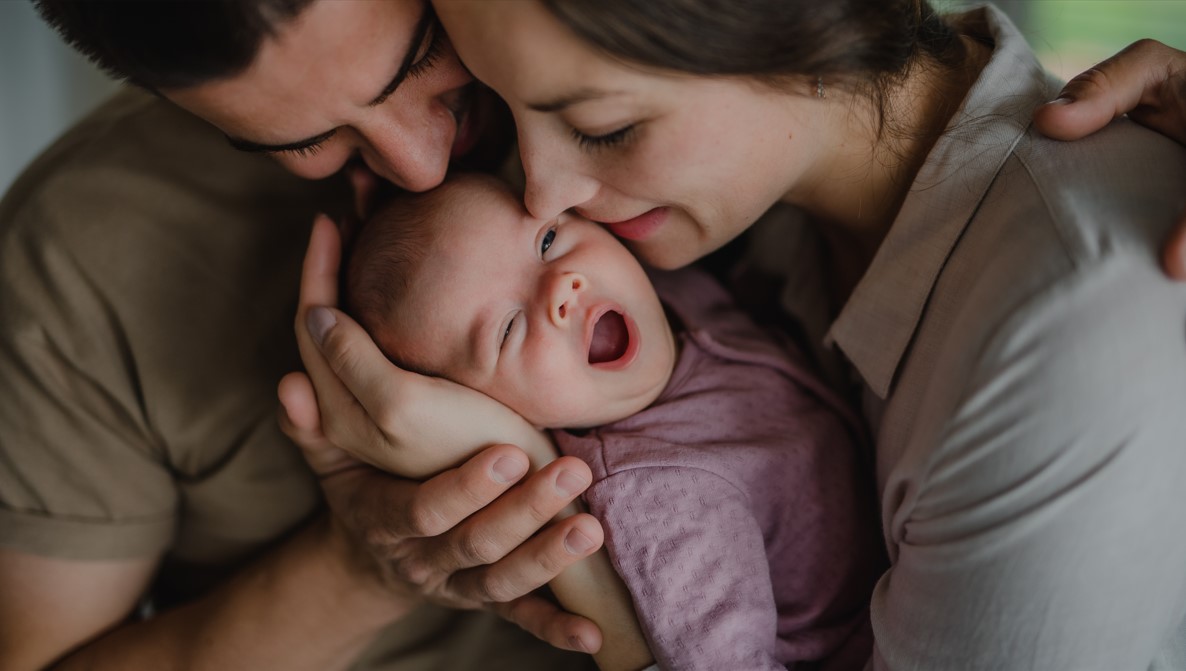Parenting styles are a big thing with moms and dads. Sometimes that’s the icebreaker in any conversation between parents. Parenting styles change as the years go by with each generation, but if you look at it, it still stems from the very four styles that the “parenting world” bases on how they handle every stage in their kids’ lives — whether it’s the beginning of a school year, a phase in their life, or when having to face change with moving to a new house and lot for sale in a new neighborhood.
Why You Should Know About the Meaning of “Parenting Style”
Parenting Styles refers to the various ways that parents raise their children, from early childhood to adolescence. This might be a reference to the parent’s levels of expectations, performance requirements, adherence to regulations, etc., as well as the type of punishment the parent uses to enforce their expectations and for parental control.
Either the child or the parent can be the center of parenting. Parenting style may refer to the emotional climate and level of control that parents provide for their kids. It can be characterized as either dominating or nurturing. While certain parenting style trends might promote stress and mental health issues in children, others can help a child’s psychology and maintain the children’s mental health as they grow and develop.
How Do Parenting Styles Affect Children’s Mental Health?

There are four parenting styles:
- Authoritative Parenting Style (Democratic)
- Authoritarian Parenting Style (Disciplinarian)
- Permissive Parenting Style (Indulgent)
- Neglectful Parenting Style (Uninvolved)
Each parenting method has a distinctive approach to child-rearing practices, as well as advantages and disadvantages that are unique to it. People frequently want to know which are the better positive and new parenting styles and which they are currently employing to ensure that they are providing good emotional support and guiding their child’s development.
A crucial first step in the prevention and treatment of adolescent mental health problems is responsible parenting.
By exhibiting high levels of emotional warmth, low levels of rejection, and low levels of overprotective behavior, parents can help their children develop their sense of self. The influence of parenting style on teenage mental health is strongly influenced by self-esteem.
Parenting styles are categorized using two parenting behavior and style traits:
- Demandingness refers to the level to which parents regulate their children’s conduct or require maturity.
- Responsiveness refers to the level of parental acceptance and sensitivity to their kids’ emotional and developmental needs
The four parenting styles and their effects on a child’s development are listed below:’
Authoritative Parents

High demandingness. High responsiveness.
Do any of these descriptions fit you?
- You work very hard to build and keep up a good relationship with your child.
- You provide the justification for your regulations.
- You place restrictions, uphold laws, and administer punishments while keeping in mind your child’s feelings.
You may be an authoritative parent if those phrases relate to you. Parents who are authoritative uphold the rules and administer punishments, but they also take their kids’ perspectives into account. While emphasizing that adults are ultimately in authority, they accept their children’s feelings. Science and experts endorse this approach as the most effective and developmentally appropriate parenting style. Just like the discipline you put through to be successful in buying a house and lot for sale, an authoritarian parenting style adopts that kind of mindset.
These parents give their children justification and explanations for their deeds. Explaining things gives youngsters a sense of awareness and teaches them about morality, values, and objectives. They employ confrontational punishment strategies, which are reasonable, negotiable, goal-oriented, and centered on behavior modification rather than force.
Authoritative Parenting Style is one of the positive parenting styles because parents who are in charge are in these parenting practices are kind and encouraging. They foster independence, value individuality, and give their kids lots of freedom. The democratic parenting approach is another name for this method of raising children.
Parents with authority value their children.
According to Baumrind’s studies on parenting methods, children with strict parents have a propensity for:
- Act joyful and satisfied.
- greater independence
- is more energetic.
- increase academic performance
- Create a positive self-image
- Use effective social skills when interacting with peers.
- Have improved mental health—less alcohol and drug abuse, delinquency, sadness, anxiety, and suicide attempts.
- Be less aggressive in your behavior.
- are firmly connected.
- Have a good relationship with your children.
Authoritarian Parenting Style

High demandingness. Low responsiveness.
Do you believe that kids should only be viewed and not spoken to? Do you think that the rules should be followed according to and only your way? or you don’t give your child’s feelings any consideration? Do any of these descriptions fit you? If so, you may be one of the authoritarian parents if any of those statements apply to you. Authoritarian parents tend to be strict and feel that children should always abide by the rules.
The two traits of authoritarian parenting are high levels of parental control and low levels of parental response.
Despite having names that are similar, authoritative parenting and authoritarian parenting have quite different expectations for and approaches to raising children.
Both parenting practices require high standards, but authoritarian parents expect unquestioning compliance by citing justifications like “because I said so.” Through stringent guidelines and instructions, they only permit one-way contact. Any attempts to argue with them are seen as backtalk by them.
A disciplinary parent is an authoritarian. They consider themselves to be in charge. To maintain behavioral control, they frequently utilize harsh punishments including physical punishment and strict discipline.
Authoritarian parents typically aren’t nurturing or conscious of their kids’ needs. Typically, they offer this defense, claiming that doing so will strengthen their children.
Children whose under parental control:
- Have a negative outlook.
- Be less self-reliant.
- appear uneasy.
- possess a poor sense of self.
- More frequently display behavior or behavioral concerns.
- More outbursts of rage.
- worsen your academic performance.
- possess fewer social skills.
- be more likely to internalize behavioral and mental health issues.
- increased chance of drug misuse.
- have worse coping mechanisms.
Permissive Parenting Style on an Adolescent (Lenient or Indulgent Parenting)

Low demandingness. High responsiveness
Do any of these descriptions fit you?
- Rules that you set are rarely followed.
- You don’t impose penalties very frequently.
- You believe that your child will learn best if you don’t intervene too much.
You could be a lenient parent if you can identify with those comments. Loving parents are permissive. They typically wait until there is a serious problem before getting involved.
Permissive parents tend to refer to as passive parents, they set few limits and restrictions for their children and are hesitant to enforce them. This kind of indulgent parenting style does not enjoy turning down requests from their kids or disappointing them. They use a passive parenting style.
The risk factors frequently occur for children with permissive parents:
- unable to adhere to established norms.
- have less restraint.
- possess an egotistical nature.
- additional issues in your social contacts and romantic relationships.
Neglectful Parenting Style (Uninvolved or Disengaged Parenting)

Low demandingness. Low responsiveness.
If you don’t question your child about their studies or assignments, or rarely do you know where or with whom your child is, and if you and your child don’t spend much time together, you could be an uninvolved parent. Uninvolved parents frequently don’t know much about what their children are doing. There are often not many regulations in the home. There may not be enough parental direction, care, and attention for the kids.
Negligent parents don’t set clear boundaries or strong standards for their children. They are uninvolved in their children’s life and unsympathetic to their needs. These absent parents may have grown up with melancholy, physical abuse, or neglect.
Children of Neglectful Parents’ behaviors:
- They act more hastily.
- unable to control one’s emotions.
- encounter greater issues with addiction and delinquent conduct.
- greater mental health difficulties, such as teenage suicidal behavior.
New Parenting Styles

Instinctive Parenting
This is quite similar to the traditional style of parenting when parents make decisions based on their gut feelings. The kind of person you wish to be is heavily influenced by intuition. The majority of the time, parents who practice instinctual parenting are impacted by their own upbringing. The fundamental objective of this parenting style is to imbue your children with the same values, routines, and guidelines in order to make them more like you. As you could have predicted, there is a risk for a child to lose his own personality and pattern when parents raise them instinctively.
Attachment Parenting
It has been adopted by a popular parenting style in which parents are overly worried about their children. In this case, the caregiver or parent has such a deep emotional relationship with the child that parents attempt to be there with their children the majority of the time. When it comes to emotional understanding, the relationship is really strong, and as a result, parents become more sensitive toward their children.
It is both advantageous and harmful since, as the child matures, he attempts to find all answers with his parents. After all, as kids grow older, they become less independent and mature. Parents that believe in linked parenting are more likely to favor natural births, a family bed, no punishment, or homeschooling.
Helicopter Parenting
Helicopter parenting has turned into more toxic parenting that does not allow your child’s identity to emerge. Parents who use this parenting style may become preoccupied or overprotective of their children. As a result, they attempt to keep their children under their supervision for as long as possible, if not longer. Helicopter parenting may be advantageous for young babies, but not after they start school. If you do not intervene at the appropriate time, this parenting style may backfire on you.
Permissive Parenting
This is a more tolerant approach to parenting. Permissive parenting is becoming increasingly popular as parents become more active in their own professions. Parents make little expectations of their children in this form of parenting. This occurs because they have very low expectations of their children’s maturity and self-control. It is often regarded as a superior approach to raising children. This is because liberal parenting is frequently regarded as a welcoming choice. Permissive parenting causes children to become more open to their parents.
Tiger Parenting
Tiger parenting is a kind of strict parenting approach where parents go to great lengths to ensure their children’s success. Tiger parents specifically encourage their kids to excel in high-status extracurricular activities like music or athletics or to reach high levels of academic proficiency. Those who support tiger parenting think that having high expectations leads to great accomplishment. However, detractors of this approach claim that the parenting approach may be detrimental to children’s mental health and the children’s behavior. Due to the frequent demands made on them, adolescent children raised with tiger parenting techniques may struggle with their self-esteem. If they believe they aren’t living up to their parent’s expectations, they could also be afraid of making errors or failing them. This relationship between parenting and the strict way of insuring the child’s security can also cause a poor parent-child relationship.
Which Parenting Style Is The Most Effective?

After reading about the different parenting styles, the greatest results for children are consistently associated with authoritative parenting, according to decades of study in the field of parenting.
Psychologists and psychiatrists concur that the authoritative parenting approach is the most effective. Over 25 years have passed since many nations began studying this categorization of parenting philosophies.
Results are often found to be consistent with each parenting approach. But sometimes there are still some significant discrepancies and outliers.
Parenting Style and Your Child’s Physical and Mental Health
The kind of parenting that fosters a loving, secure environment at home, especially when moving to a new neighborhood after buying a house and lot for sale, that is characterized by warmth has the best effects on children as they mature and develop into adults. Of all parenting approaches, authoritative style parenting has the greatest favorable impact on children. Children who are under parental rearing styles are more likely to be independent, cooperative, responsible, well-adjusted, and mentally sound.
While you’ll want to avoid underparenting and ignoring your kids, you also don’t want to go overboard. How so? Protecting your kids excessively will reduce their opportunity to handle anxiety-provoking circumstances and build positive self-esteem. The future emergence of anxiety disorders can be attributed to an inability to manage events appropriately.
The opposite is possible in some circumstances. Your kids could feel more autonomous by acting in opposition to what their parents advise since they are so accustomed to being shielded and numb to certain situations. For instance, parents who overprotect their kids from alcohol and drugs may cause them to become too interested as an adult and engage in substance misuse.
Meanwhile, judgmental, dismissive parenting styles can undermine child behavior and cause anxiety, despair, or low self-esteem. The same may be true about assessing your kids’ self-worth or body image. Being overly rigorous might hinder a child’s mental development since they already struggle with managing their emotions.
Related Blog: Why Your Child Isn’t Maturing: Helicopter Parents vs. Lawnmower Parents


